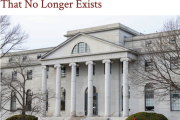Although the number involved is still too limited to sustain such a generalization just yet, it appears Africa is daring Covid-19 by re-opening the campuses. In the latest of such, Nigeria which has been pushing back and forth has made a daring national move against the pandemic, by throwing open the campuses again January 18th, 2021 after being shut for nearly a year due to combined reasons of Covid-19 and an industrial action.
 Ghana made the first registered move when it announced January 9th, 2021 as the D-date. South Africa, the African country with Covid-19 impact closest to Europe, is recommencing the academic year in March/April, two months behind time. In the case of Nigeria, the overriding announcement from the Federal Ministry of Education is coming after conflicting statements and positions by diverse actors in the system. Egypt is the major case of dancing out of step in this direction as the country is returning to online learning across the system as Covid-19 bites harder.
Ghana made the first registered move when it announced January 9th, 2021 as the D-date. South Africa, the African country with Covid-19 impact closest to Europe, is recommencing the academic year in March/April, two months behind time. In the case of Nigeria, the overriding announcement from the Federal Ministry of Education is coming after conflicting statements and positions by diverse actors in the system. Egypt is the major case of dancing out of step in this direction as the country is returning to online learning across the system as Covid-19 bites harder.
It is not clear upon which global health intelligence the move in Nigeria is based on. It might not be unconnected with doing so because there are no viable alternatives. While a few private universities can migrate online effortlessly, the massive Nigerian public universities cannot. Yet, keeping the huge Nigerian student population at home has political and security implications. This is more so that just about anything under the earth can easily degenerate into a North-South or even religious discord.
The Minister for Education, Mallam Adamu Adamu gave a hint of postponement of the January 18th date initially announced by the Presidential Taskforce on the pandemic. His statement attracted both approving and disapproving responses reflecting the tension in the larger society.
While some leaders of Academic Staff Union of Universities, (ASUU) in their individual opinion freely canvassed in the media cautioned against re-opening, the proprietor of one of the private universities – Chief Afe Babalola – gave a press conference warning against continued closure, saying some universities had first class facilities to cope with the pandemic. He makes the particularly interesting argument against continued closure which is that the world would still be battling with Covid 19 for much of 2021, making continued closure a choice for losing the entire one year. Before his intervention, the National Union of Teachers, (NUT) had taken a completely different position, warning against re-opening, fearing that the spike in infection made it dangerous to do so.
Covid-19 has not been as disastrous in terms of death records in much of Africa as in the other non-tropical parts of the world. Nobody has put his or her finger on why in a conclusive sense. The high youth percentage of the population, the plenitude of sunlight, the abundance of natural food and the lockdown strategy implemented by many are some of the explanations being offered. How the dynamics play out is within the grasp of nobody and hence the apprehension about re-opening the universities, given the large concentration of students involved. But that is if there are alternative options.




























